单片机与无线技术的LED灯调光器系统研究(附程序代码,PCB图)(任务书,开题报告,外文翻译,论文9000字,程序代码,PCB图)
摘要
无线网络技术在近几年的发展速度十分迅猛,其中最具代表性的当属WiFi技术,它涉足的领域十分广泛,当然也包括了灯光领域.随着生活质量的提高,人们不断追求视觉享受,灯光控制的技术因此不断复杂化,控制方式也越来越多样。传统的控制方式缺少灵活性,可靠性也有所欠缺。本文设计思路是将WiFi技术与灯光控制系统结合起来,利用无线技术的优势,不仅降低控制系统的成本,还提高了传输速率,灵活且便于移动,在传统的灯光控制方式进行了优化。
本文主要研究基于单片机和无线技术的LED灯光控制系统,本系统可以通过手机APP控制灯光的开关和亮度。本文主要针对无线灯光控制系统进行设计和开发,并展示最终成果。
关键词:单片机,WIFI模块,电源电路
Research on LED Light Dimmer System Based on Single
Chip Microcomputer and Wireless Technology
Abstract
Wireless network technology has developed rapidly in recent years. The most representative one is WiFi technology. It covers a wide range of fields which includes the lighting field. With the improvement of quality of life, people continue to pursue visual enjoyment. The technology of lighting control is thus constantly complicated and the control methods are more and more diverse. Traditional control methods lack flexibility and reliability. The design idea of this paper is to combine WiFi technology with lighting control system, and take advantage of wireless technology to not only reduce the cost of the control system, but also improve the transmission rate, flexible and easy to move. Improve the inadequacies of traditional lighting control methods.
This paper mainly studies LED lighting control system based on single chip microcomputer and wireless technology. This system can control the switch and brightness of light through mobile phone APP. This article focuses on the design and development of wireless lighting control systems and demonstrates the end result.
Keywords: Single chip microcomputert, WIFI module, Power circuit
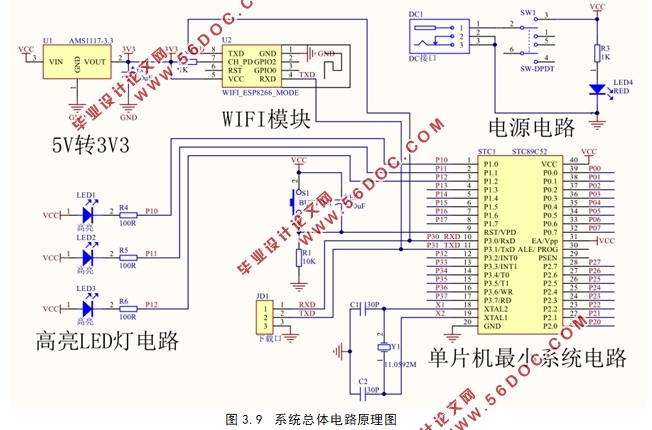
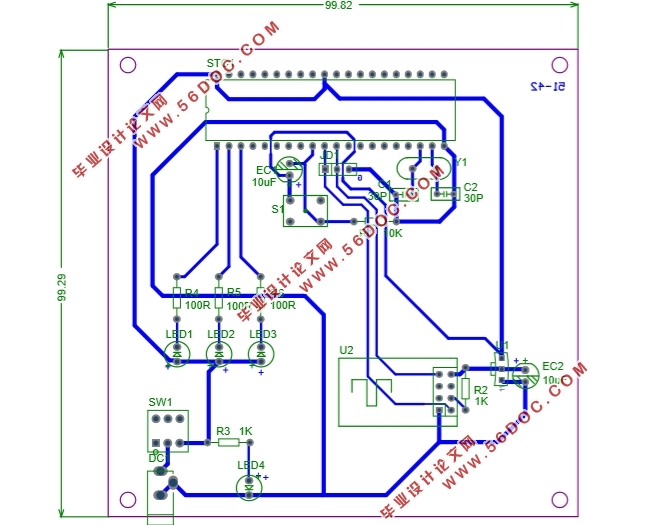
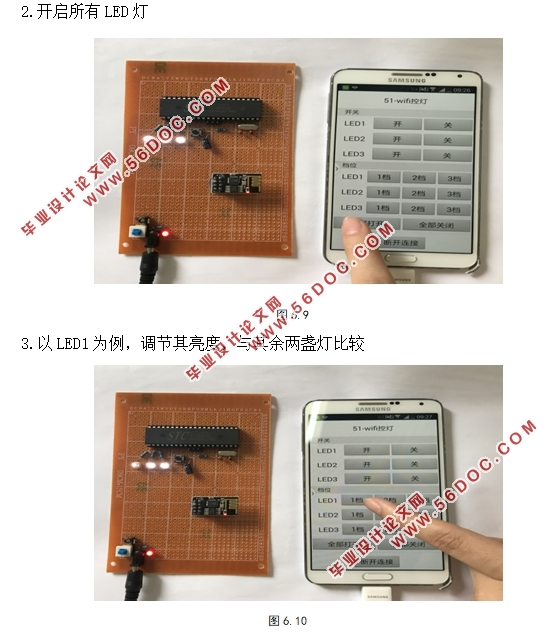
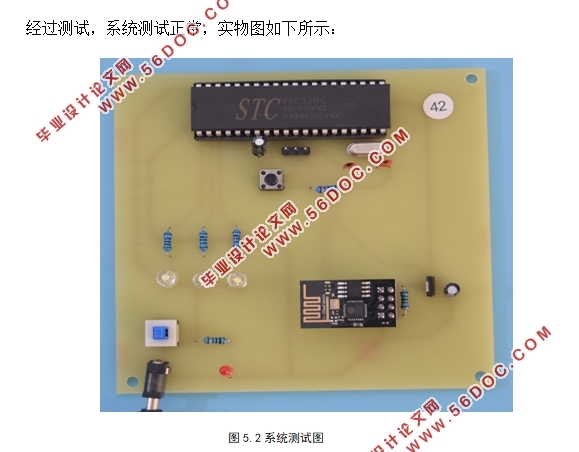
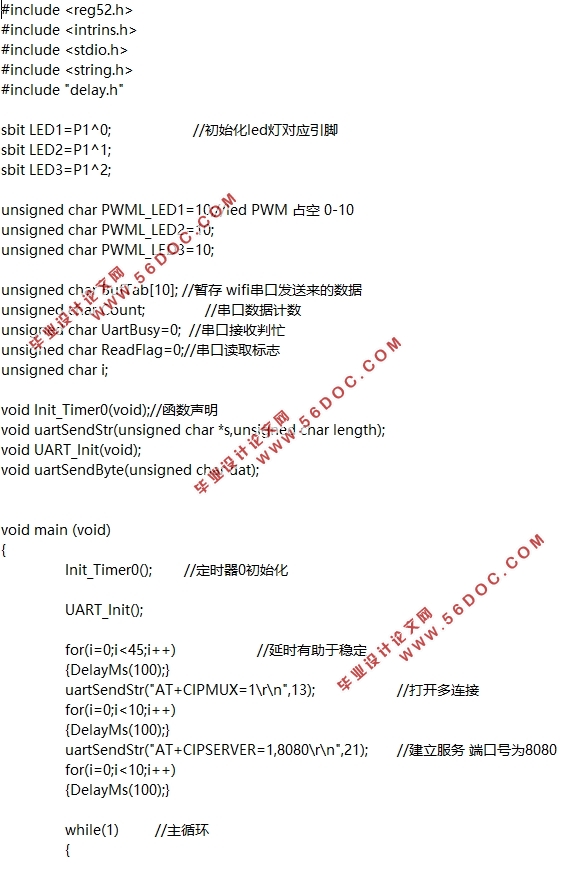
目 录
摘要 II
Abstract III
第一章 绪论 1
1.1研究背景 1
1.2本文意义 1
1.3国内外的研究现状 1
1.4本文的组织结构 2
第二章 方案的设计与论证 3
2.1控制方案的确定 3
2.2控制方式的选择 3
2.2.1 单片机芯片的选择 3
2.2.2 无线遥控模块的选择 3
第三章 硬件电路的设计 5
3.1系统的功能分析及体系结构设计 5
3.1.1 系统功能分析 5
3.1.2 系统总体结构 5
3.2模块电路的设计 6
3.2.1 单片机核心系统电路设计 6
3.2.2 5V电源电路设计 7
3.2.3 ESP8266WIFI模块电路设计电路设计 8
3.2.4 5V转3.3V电源电路设计 9
3.2.5 高亮LED灯照明电路设计 9
第四章 系统软件设计 11
4.1 编程语言选择 11
4.2 单片机程序开发环境 11
4.3软件开发流程 12
4.4程序烧录软件介绍 12
4.5 PL2303串口程序烧写模块介绍 13
4.6 程序流程图 14
第五章 系统焊接与调试 16
5.1电路焊接 16
5.2系统调试 16
5.2.1 系统程序调试 16
5.2.2 硬件测试 17
5.3实物测试 17
第六章 控制系统手机App开发 19
6.1手机App页面 19
6.2软件开发 19
6.3 App使用 22
总 结 24
参考文献 25
致 谢 26
|











